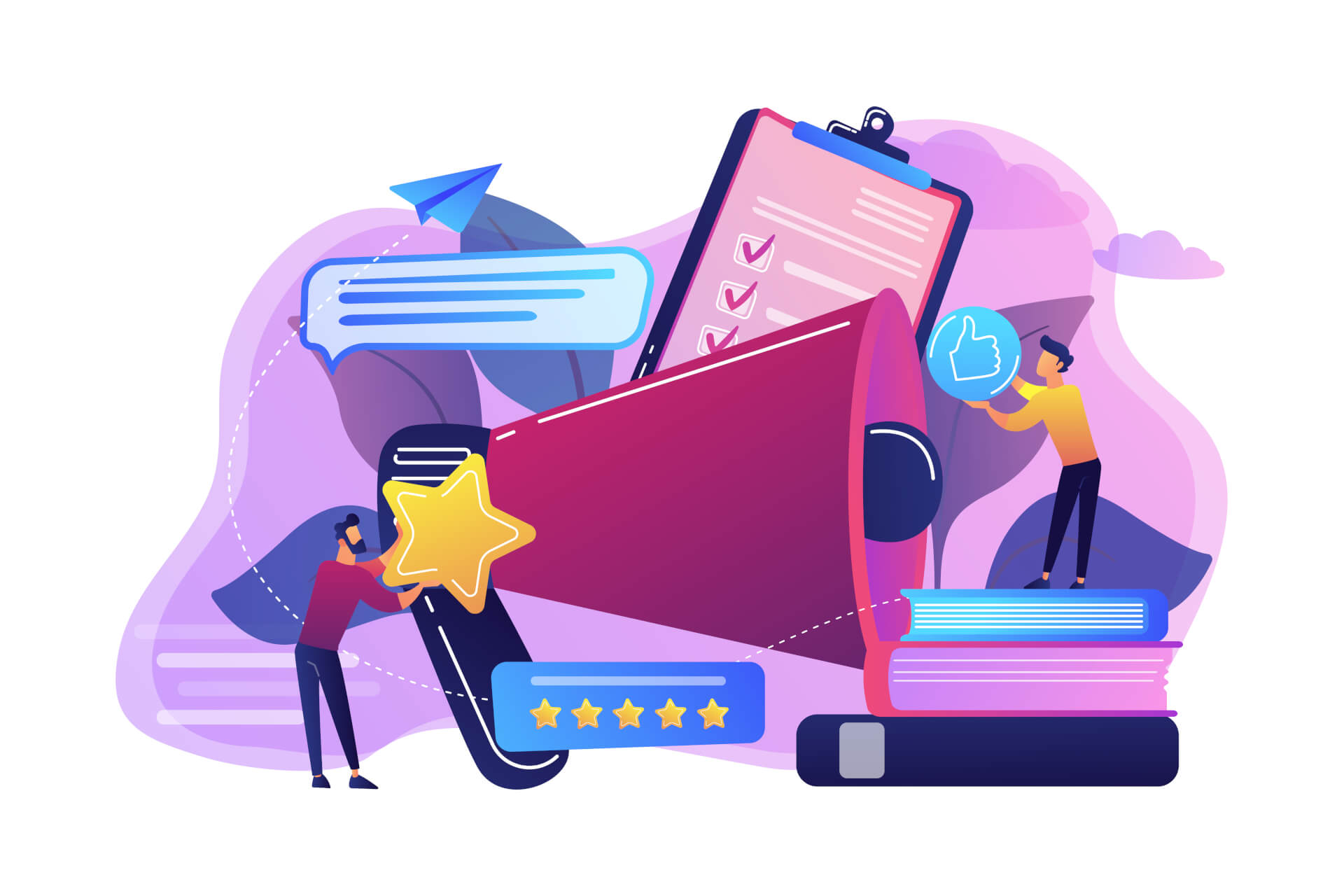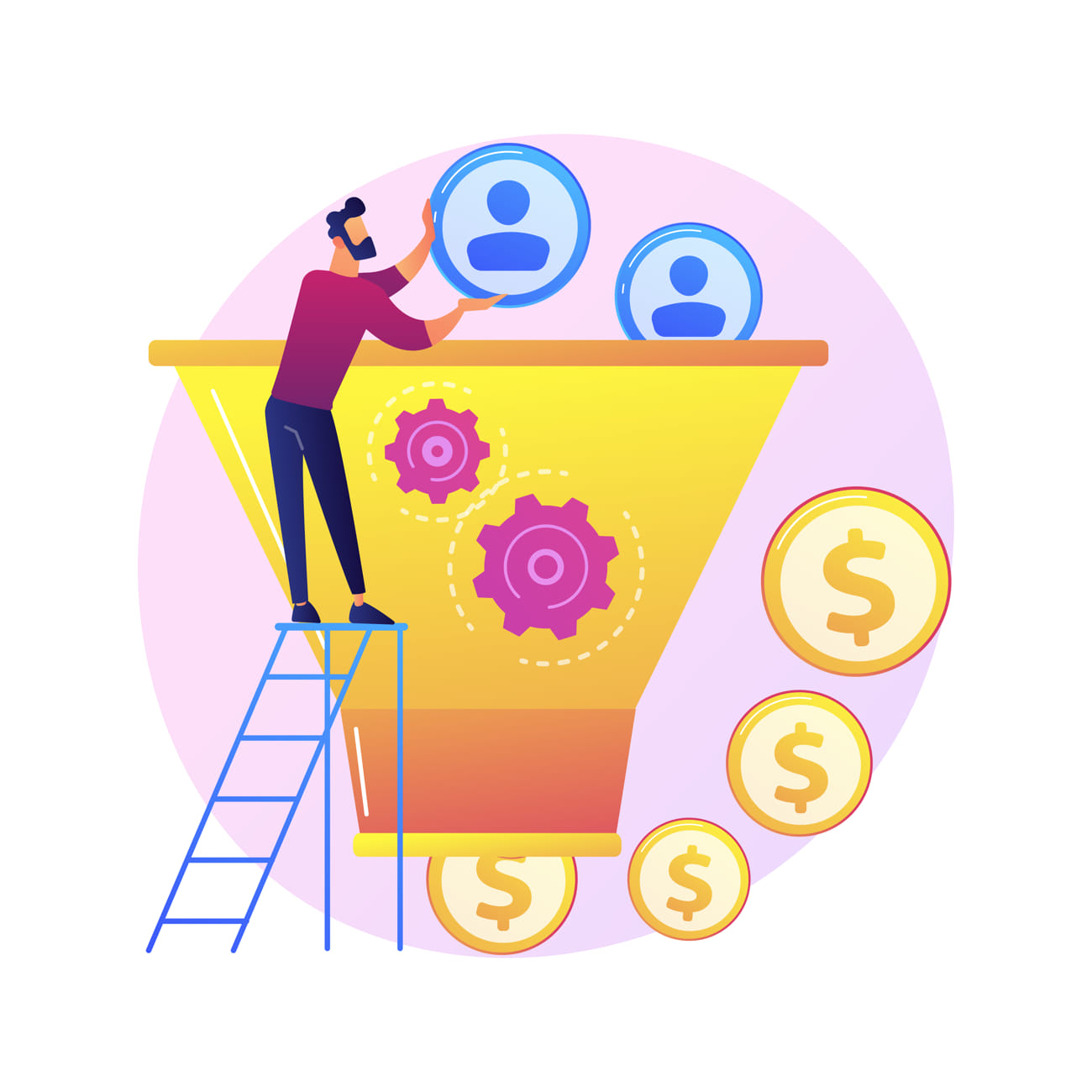You can only get an idea of how loyal your customers are, if you constantly inquire about the satisfaction.
Fidelity and loyalty to a company or product can be established with simple means. If you are satisfied with a product and service and it serves its purpose, very few customers will consider switching. They have had a good experience, agree with the price and know how to use the product.
As long as you can maintain this state, these customers will remain loyal to you for years to come.
Therefore, focus on developing customer loyalty to ensure that your customers will continue buying from you for a long time.
In the following we clarify what customer loyalty is and why customer loyalty is crucial for the growth of a company.

Table of Contents
What is customer loyalty?
- Customer loyalty is the consistent choice of a company's products and services while ignoring competitors.
- When a customer is loyal to a company, prices and availability do not influence the purchasing decision, here the focus is on maintaining the quality of service and using the well-known product that the customer knows and loves.
- Customer loyalty is the direct result of a company's efforts to consistently meet and, if necessary, exceed customer expectations.
- Studies have shown that over 80% of customers base their brand loyalty on trust. In other words, establishing a solid customer loyalty is about sympathy and trust towards a product or a brand.
When your customers trust your company, they are more likely to buy from you again in the future.
Why is customer retention so important?

No business can survive without happy customers who keep shopping.
The acquisition of new customers usually costs a multiple of what it costs to retain an existing customer.
It is crucial for business success that customers constantly use your service or renew your products over and over again.
Loyal customers are simply better for business because they help you grow and keep profits up.
Greater customer loyalty helps businesses grow
Returning customers are good for business, but loyal customers have other, more subtle benefits.
Let's use the "leaky bucket" metaphor to illustrate this.
 This is the comparison with a leaking bucket. The bucket represents your customer base, every new customer flows into this bucket. However, since it has a hole, some customers are constantly draining away.
This is the comparison with a leaking bucket. The bucket represents your customer base, every new customer flows into this bucket. However, since it has a hole, some customers are constantly draining away.
Losing a customer is known as churn. This has a major impact on the success of a company. The fewer customers who leave, the more successful your company is.
Of course, one could argue that the bucket simply needs to be refilled quickly. Even if you can somehow fill the bucket faster, which wouldn't be an easy task given the cost of acquiring a new customer, you're still losing valuable customers.
Closing the hole is the cheaper and long-term successful option. By closing the hole, or in other words, by improving customer retention, more customers will stay with you, the churn rate will decrease, while sales will increase.
A 5% increase in customer retention increases business profit by 25% to 95%.
If the cost of acquiring a new customer that offsets the customer who has just churned were to cover each other, then churn would not be a relevant issue.
In reality, however, acquiring new customers is on average 5 times more expensive than keeping an existing customer.
Loyal customers also make it easier for companies to grow, after all, loyal customers recommend your company or product to friends and acquaintances and talk about it on social media.
As you consider whether referrals really matter that much to your bottom line, consider the following insights:
- The lifetime value for new customers who came to you through a referral is 15% higher than for new customers acquired through another marketing channel. The reasons for this phenomenon are that these customers have already formed a positive opinion of the company, and the recommendation came from friends who knew they would benefit from the product or service.
- Reviews on social media sites influence the purchase decision of 83% of online shoppers.
- B2B companies with referrals see a 70% higher conversion rate
- Almost 90% of consumers surveyed said they would only recommend a company they trust.
This means that trust has not only given you loyal customers, but also helps you acquire new customers. Since customer acquisition is costly, it is always beneficial to grow your customer base organically.
Customer loyalty is not just about keeping customers from leaving the company. It's also about maximizing growth opportunities.
Customer loyalty means higher profits
For a business to be successful, revenue must exceed expenses.
In order for new customer acquisition to be successful, the new customer must buy at least enough from you to break even.
Customer acquisition costs (CAC) often include items such as marketing spend, sales labor, and software costs. All of these costs add up, so check how long you need to keep a customer to break even.
Customer loyalty is therefore not only a nice idea, but absolutely necessary to keep the company running.
Increasing customer retention by just 2% has the same impact on profits as reducing operational costs by about 10%!
Therefore, focus on customer loyalty, because it leads to higher profits and the overall success of the company.
 Recommended reading: If this article helped you and you would like to learn more about the role of NPS in shaping the customer experience, continue reading here: "The role of NPS in customer experience (CX)"
Recommended reading: If this article helped you and you would like to learn more about the role of NPS in shaping the customer experience, continue reading here: "The role of NPS in customer experience (CX)"